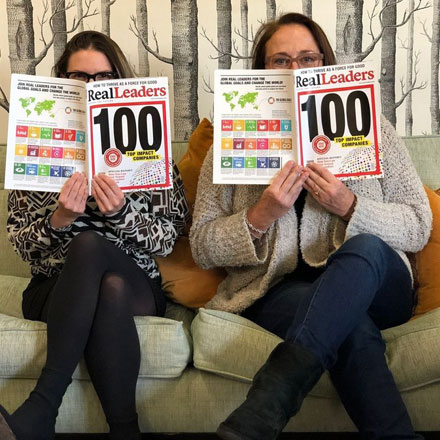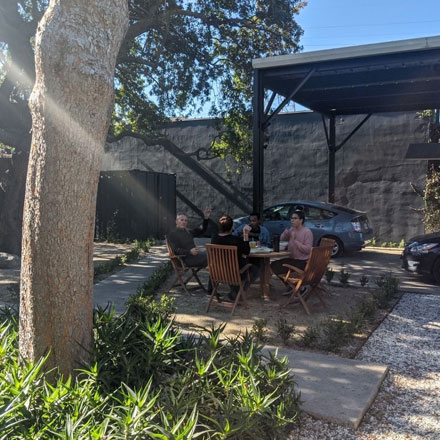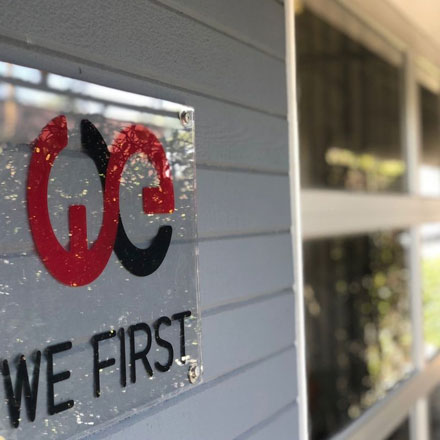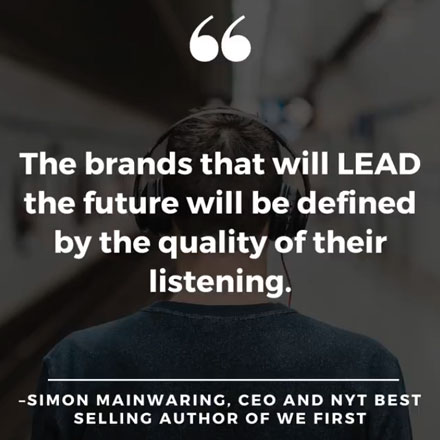
Blog
Purpose At Work: How Imperfect Foods Is Growing Solutions To A $400 Billion (Hidden) Problem
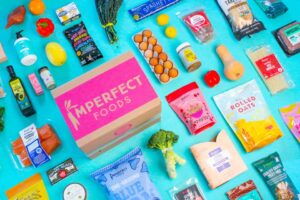
So, you’re a food grower, manufacturer, or distributor. And you have a major dilemma.
An item gets discontinued and you’re stuck with a hundred gross. Or the packaging changes and somebody’s marketing department won’t have old news on store shelves. Or the item’s short-coded: although perfectly safe, the “best by” date of that certain carton is deemed “too soon” by conventional retailers.
Or you have a surplus of stuff: way too much rice or chicken or wild-caught salmon earmarked for cruise ships now suddenly docked during a pandemic.
Or maybe there’s a bunch of loose ends and broken pieces left after the manufacturing or packaging process of your pretzels, almonds, or cashews.
Or perhaps you’re a food grower and you have perfectly delicious and nutritious radish, squash, or tomato that grocery store standards would consider unsightly.
These products are perfectly good to consume and absent someone swooping in to give them a second life will most likely go to waste.
Now combine and compound all that waste, and guess how much you get? The USDA estimated that loss and waste from the food supply at the retail and consumer levels in 2010 was 31%, equaling 133 billion pounds. By 2019, according to research by the nonprofit ReFed, a whopping 35% of all food in the U.S. went unsold or uneaten. That’s the equivalent of about 2% of the entire U.S. GDP — $408 billion worth of food.
The greenhouse gas footprint of all that waste getting incinerated, dumped in landfills or down the drain, or heartbreakingly left to decompose in hardworking farmers’ fields, is equivalent to 4% of U.S. total GHG emissions.
And what’s worse is that along with this enormous volume of waste, about 40 million Americans — nearly 13% of the population — live in food deserts or food swamps — not to mention the 35 million Americans who live in households that struggle against hunger — that’s one in ten (10.5%) of people in this country experiencing food insecurity.
Rather than accept those unfortunate stats, along came San Francisco-based Imperfect Foods (formerly Imperfect Produce) in 2015. Cofounded by Ben Simon and Ben Chesler, Imperfect Foods is an online eCommerce retailer that delivers directly to subscribers in most states of the union affordable, high-quality food that might have otherwise been trashed.
Thanks to its sustainable sourcing mission, to date it is on track to save almost 200 million pounds of food. That’s close to 20 Eiffel Towers’ worth.
Growing frustrated — & more optimistic by the day
Madeline Rotman, Head of Sustainability, sees these kinds of circular, regenerative evolutions in our economy as no longer niche, but more and more mainstream every day — especially since the disruptive force of COVID. But she, like many Lead With We thinkers wonders, “What’s next? How do we push this movement forward?”
Imperfect Foods is on the frontlines of the answer to that question. “We work to reimagine grocery,” Rotman tells We First, “by asking, ‘How can we eliminate food waste and build a better food system for everyone?’”
That purpose starts with an audacious commitment: “If food can be saved, we’ll save it,” Rotman says. “And if we can’t fight food waste with every grocery item we offer, we can pledge to provide only products providing good value, high quality, and sustainable sourcing.”
A growing problem
Whether you look at it from the perspective of lost resources, missed opportunities, or environmental impact, says Rotman, this problem “is very unique to food. If you were to look at any other business, no one would let this amount of shrinkage or loss happen.” Then why food?
“The reason we let it happen is one: It’s so disparate,” Rotman says. “It’s not centralized in one space. Two: We don’t see the compounds, we don’t see what gets left in the field.” Lastly, food is perishable. “When we talk about TVs or electronics or physical goods that are shelf-stable — sneakers, household building materials — those can sit on the shelf and we move them quickly,” Or you look at them, see a problem, and say, ‘I don’t want this sitting here anymore so let’s put it on sale. Let’s change it.”
“But when you’re dealing with perishable food, the infrastructure needs to exist before it’s harvested, the infrastructure to move it through the food system,” says Rotman. Then there’s “the speed at which we need to move it.” All this leads to an “out of sight, out of mind mentality that enables us to create this problem.” Then you look at the aggregate across the U.S., across the entire food system: “Wow, this is a $400 billion problem that we are enabling to happen by not creating solutions.”
Growing a network of grateful suppliers
So what’s the solution? The Imperfect brand started with cosmetically-challenged produce — and that’s still a mainstay of its business. But it’s expanded its supply chain far beyond the fields. “We start with this network of growers, suppliers, manufacturers, ranchers, and fishermen, and we work with them to say, ‘Where is the waste in your supply chain? And how can we design that out?’” Rotman says. “Because we think waste is a design flaw.”
Take that slightly warped radish (or that hail-pocked apple, or normal — in other words, not giant — sized blueberry): “These are not products that are anything but perfect in nutrition and taste and flavor,” says Rotman. “They just might be aesthetically not what the market is looking for.” In fact, one in five produce items don’t make the strict retail cut — only based on cosmetic flaws.
“If a farmer can get a 100% yield, that’s incredible. We are so happy for them,” says Rotman. Its suppliers no longer expect — or even accept — that a certain proportion of what they grow will never pass muster at the “beauty” pageant of the average U.S. retailer.
Rotman says Imperfect Foods tells those farmers, “Pack your number ones, pack your perfection for whomever your original purchaser is. And then pack the number twos — whatever is a little too small, a little too big — into another box, and bring that to us.”
It’s that partnership that’s disrupting not only eCommerce in general and the online grocery trade — but the entire “antiquated” and “broken supply chain and the whole grocery industry,” says Rotman. “We say, ‘Hey growers, do you have this problem?’ And when a grower says, ‘Yes,’ we say, ‘Great, partner with us.’”
Once partnered with the grower or other supplier, Imperfect Foods then organizes collaborations with a massive network of co-packers and manufacturers who sort and pack the products then ship them to one of six Imperfect fulfillment centers — “and then straight from there,” Rotman says, “it goes right to the customer.”

Growing awareness
Surely malformed squash and misshapen kiwis aren’t going to change the world. Guess again. The company’s ascent from idea to the top of the mission-based online grocery space began with customer education. Which capitalized on emerging shifts in consumer behavior.
Then, after four years of average triple-digit growth and a proprietary supply chain firmly in place, Imperfect grew to approximately half-million subscribers. It also helped that many investors in the ESG space — and a few celebrity investor/advocates — created a domino effect of interest. Its Series D commitment this year totaled $110 million, and one investor called it a “mission with a margin.”
So, gone are the days when the company in its original regional incarnation had to advertise its ugly produce with affable googly-eyes: I’m just a friendly, adorable eggplant; please eat me! Those ugly eggplants added up: Imperfect finished 2020 with a revenue run rate of $500+ million.
By now, the national company has managed to make a dent in “dismantling the beauty standards and perfection standards” across the whole supply chain, says Rotman, so that people realize “This is all food … We start there, in the field, in the soil, in the water, on the ground — and we end at the customer.” It’s all food.
The average consumer’s conditioning to think perfect, uniform, shiny produce makes the best produce is waning — especially as more conscious consumers and new generations grapple with the staggering waste statistics. Rotman points out an interesting paradox that the company’s gradually addressing: “You go to a restaurant and it’s all about taste. But at home or in the store, you want everything pretty and shiny.”
Rather than elusive and shallow shininess, Imperfect Foods is focused on establishing and maintaining “Flavor, taste, and trust.” The funny thing is, many of its products — including fruit and vegetables — are “perfect” or near-perfect. So why the name? “We think that the food system is what’s ‘imperfect,’” Rotman says.
Part of the reason the movement Imperfect’s leading caught on, according to Rotman, is that “Food waste is not political. So, we have this amazing opportunity to be a movement that’s so far — knock on wood — to this day, still apolitical — and everyone can get behind it. We have this ability to shift the market, to shift sustainability, and move it forward in a space that is not as heated or political as electric vehicles or some of the other areas that somehow have become politicized.”
Growing product lines
That’s one reason Imperfect expanded beyond produce to include in its subscription boxes “certain items that we know can build a better food system, such as plant-based alternatives to certain milks or certain protein. We want to be able to offer that so our customers can get a full shopping experience” including meat, fish, snacks, and pantry items in its weekly boxes.
“We’ve grown our mission to grow with the customer,” says Rotman. “We started in 2015 as just Imperfect Produce. We rebranded in 2019 to Imperfect Foods. And part of that was we realized we can save more food if we offer grocery items.” That transformation began with a single lentil grower whose “blemished lentils” blossomed into more packaged dried vegetables and finally, the entire grocery assortment.
One way the company does that, says Rotman is: “We take in surplus food as well. We will take a product that possibly someone grew for a specific vendor, whether it’s a retailer or a different institution or a restaurant group, et cetera. And if they can’t take it for whatever reason, whether their forecasting was off, they’ve changed their menu, they’ve shut their doors, there’s no longer a place for the item anymore.”
This line of business was never more active than since the pandemic, which forced the company to adapt on the fly. It worked. Its CEO, Philip Behn, reports the company’s volume grew by 40% in 2020. In large part because of increased awareness of supply chains — and ransacked store shelves in the wake of panic-buying.
“We were able to tell our consumers, ‘Hey, all of our broccoli florets were originally destined to go to institutions like cafeterias — but those institutions are literally shut down,” Rotman recalls. It repackaged popcorn that shuttered movie theaters would have otherwise had to toss.
“I think that was the first time that on the customer side, people understood. And it’s still happening every week,” Rotman says. “Not as drastically as entire institutions shutting down — but those market demands and market shifts of menus changing, delays in trucking, forecasts being off, we need supply chain flexibility and solutions like Imperfect to be able to save all that food.”
Today, growers and manufacturers still come to the company with supply chain problems — “‘Can you help me find a solution? But now it’s expanded into figuring out how we can build a better food system through this entire assortment of groceries, Rotman says.
Growing a healthy company culture
Closer to home, Imperfect works on cutting wasteful steps out of its own supply chain. “Often waste is happening by moving food in lots of directions, to lots of places, and rehousing it. So, we try to go directly from the manufacturer or the grower straight to us and then straight to our customer,” Rotman says.
In its operations, Imperfect has committed to net zero carbon by 2030. “And so we are working really hard internally to bring down our own waste-to-landfill,” Rotman says.
Since the founding of the company, “We have had a massive donation program. We work with nonprofits across all of our regions to work with them to promote food security in our local communities. Because we’re an online retailer, no one realizes that we’re in the neighborhood and in the community.” The company donated more than three million pounds of food last year to local communities, Rotman reports.
Imperfect Foods also works with local composters to ensure that it doesn’t generate any food waste internally. At the moment, it’s diverting about 75% of its waste, and with Recyclops, its third party recycler, finding ways to improve that ratio.
Meantime, all of Imperfect’s packaging is upcycled and nontoxic. Its free national packaging return program, recently launched, provides customers the option to return the gel packs and insulated silver liners that help keep their deliveries cool. It’s aiming to keep six million pounds of its packaging materials out of landfills every year.
One of Imperfect’s mantras is “Use the Whole Carrot.” It means it believes “All resources are valuable and should be used with care. We seek to cultivate sustainability in everything we do.”
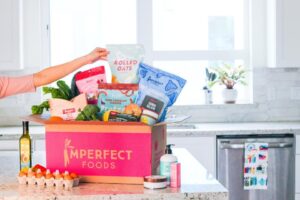
Growing the movement one “imperfect” person at a time
Despite its rapid financial growth — it’s valued at $700 million — for Imperfect, growth, and success is not all about the financial bottom line. And sustainability is not all about the product and its packaging and footprint. It intends to grow the sustainability movement. “We’re not just here to earn a living,” leadership says. “We’re here to nourish a kinder food system that benefits everyone. We’re inspired and motivated by causes bigger than ourselves and bigger than our company.”
Because real people in the real world experience a company’s impact, whether positive or negative. So, for example, Imperfect offers reduced pricing for customers experiencing financial struggles, and goes the extra mile for those geographically isolated.
In 2020, the company “committed to being an anti-racist company. We put out a pledge,” Rotman says. It expanded its DI&E efforts. “All of these new initiatives are becoming normalized because of companies like us saying, ‘None of this is mutually exclusive. We can do all of these together,” Rotman says.
Finally, Imperfect’s core values include some excellent counsel for companies large and small looking to Lead With We:
- Celebrate Diversity. In the same way we ought not to discount a twisted carrot, we cannot dismiss an imperfect person. The company’s “Be Imperfect” credo declares, “It’s what’s different about us is worth celebrating. We understand that personal and team growth only happens if you bring your whole, authentic self to work, and are excited to learn from mistakes. We embrace the intersection of compassion and accountability.”
- Lead with Heart. The company tries to take good care of “ourselves and others. We consciously work to create a kinder work environment and a lovable company culture.” Think of those wonderfully unique zucchinis.
- It takes a bunch. “We know that positive, collaborative energy is half the battle,” the company says. Rotman continues: “We know we can’t do this alone. How do you change an entire system? First, we plug the hole and say, ‘This is burning.’ And then we need to then collaboratively ask, ‘How do we go back and redesign the whole thing?’” The kind of energy, resources, and innovation that requires high-level — even cross-sector — collaboration.
- Think big. Imperfect keeps growing its ambition, but it’s never strayed from its original purpose. Says Rotman: “When we see food waste is no longer a problem, we will know we have won. That’s when we’ll succeed.”
If you’d like to dive deeper with more purpose-led companies like Imperfect Foods, check out the Lead with We podcast here, so that you too can build a company that transforms consumer behavior and our future.


